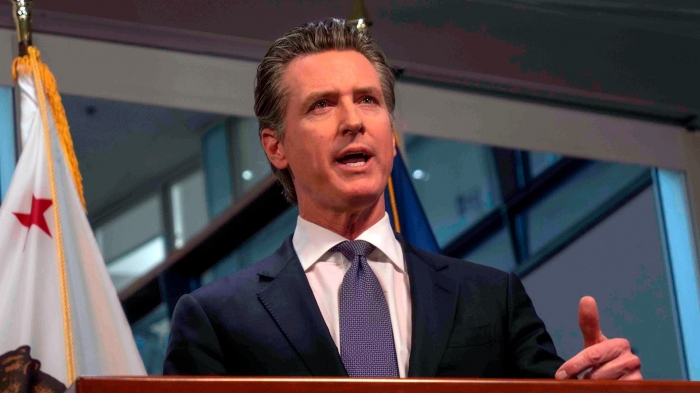T
wo weeks after the reopening of Los Angeles poker rooms, California Governor Gavin Newsom ordered on Wednesday the closure of certain businesses in 19 counties, including cardrooms, dine-in restaurants, movie theaters, wineries, and museums.
The decision doesn’t come as a surprise to those who caught the governor’s Monday public address. Newsom threatened to shut things down again in parts of the state due to an increase in coronavirus cases, Cards Chat News reports.
California has become one of the country’s COVID-19 hot-spots. The Golden State now has more than 237,000 confirmed cases, the second-most in the country behind New York. There are 6,163 known deaths from the virus in the state. Nearly 50% of those cases — more than 105,000 — were reported in Los Angeles County, home to five of the largest cardrooms in the world, including the largest one at Commerce Casino, which boasts 210 poker tables.
On Twitter, Newsom said the virus is spreading at “an alarming rate” in the state. In response, the Democratic governor is taking action to reverse the trend. As such, Los Angeles poker rooms must close immediately. Dine-in restaurants, wineries, movie theaters, zoos, and museums in LA County and 18 other counties also must temporarily cease operations.
Newsom is also advising his citizens to wear a mask and to maintain social distance during the upcoming Fourth of July weekend.
The governor hasn’t announced a specific date for when he’ll allow these businesses to reopen again, but says they’ll be closed for at least three weeks. At that point, he’ll re-evaluate the situation again.
Due to the new closures, the “Live at the Bike” stream will quit filming until The Bicycle casino can legally reopen. LATB recently began streaming its popular cash game show on YouTube and Twitch for the first time in nearly three months.
Los Angeles County has six poker rooms — Commerce Casino, Bicycle Casino, Hollywood Park Casino, The Gardens Casino, Larry Flint’s Hustler Casino, and Larry Flint’s Lucky Lady Casino, which is the only one that didn’t reopen since the first COVID-19 shutdown.



